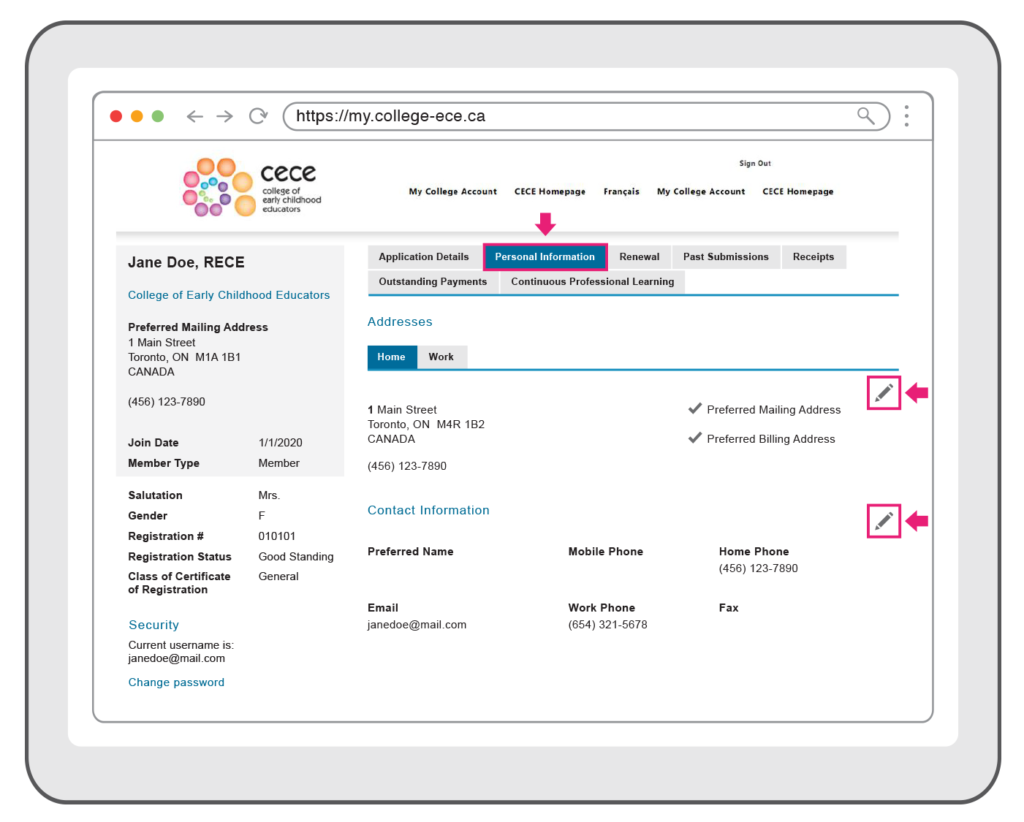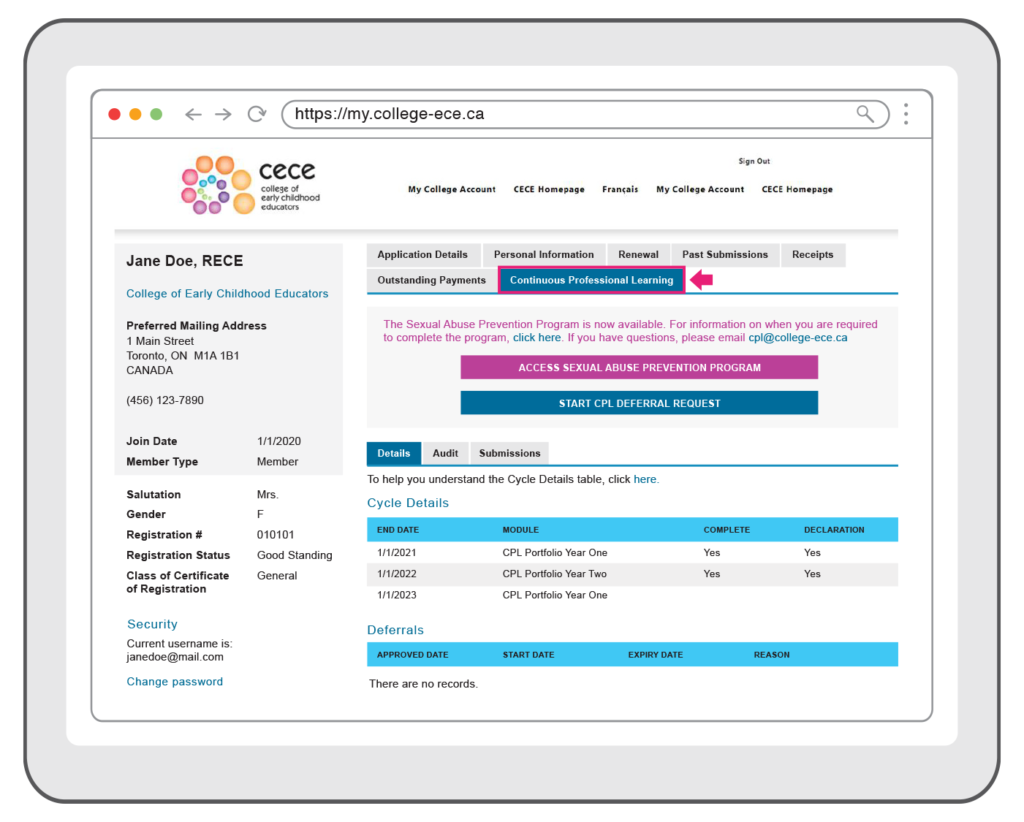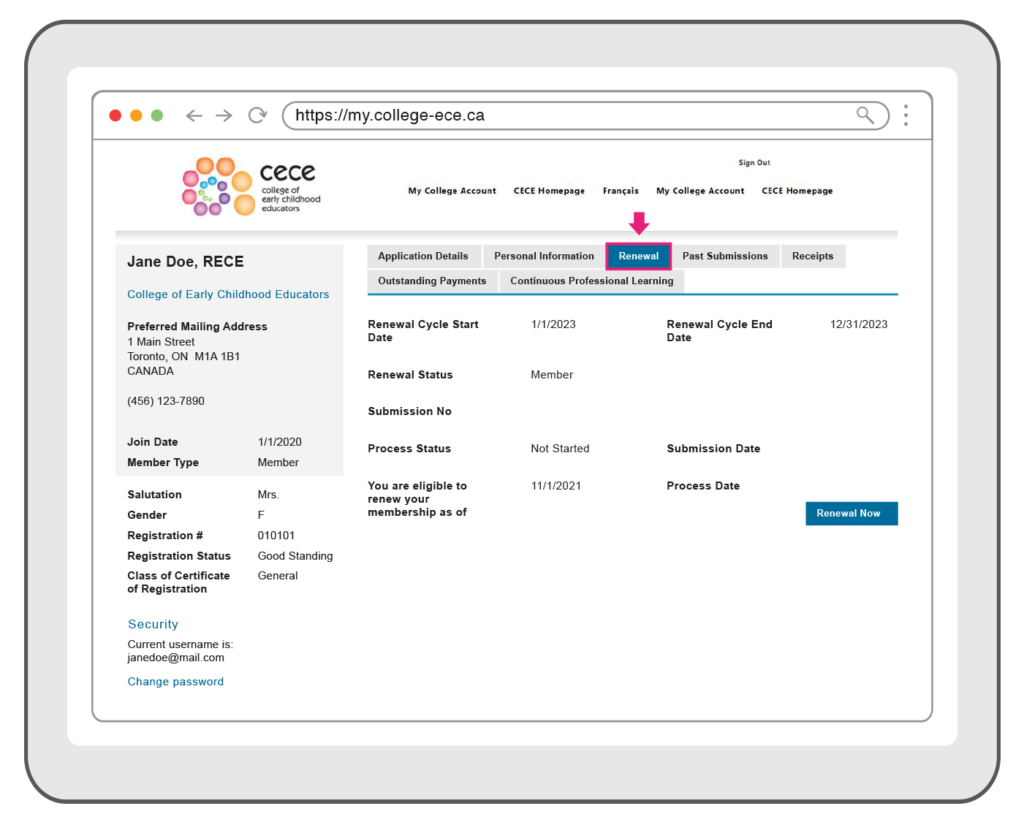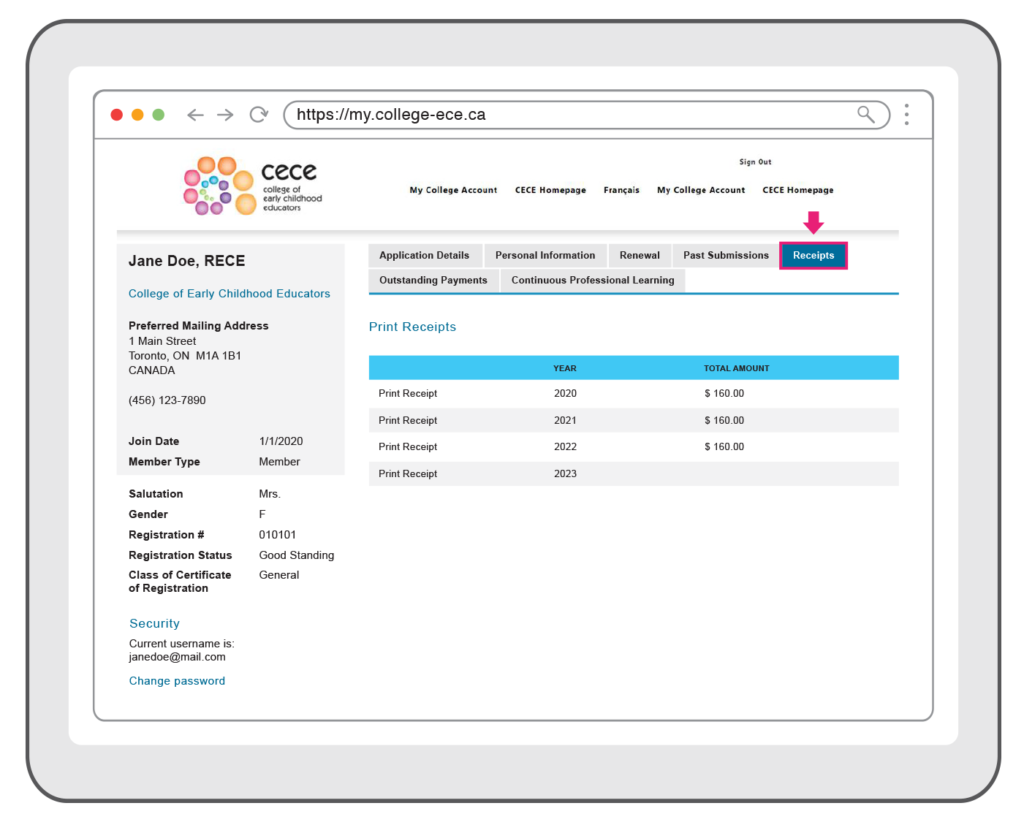Employer Newsletter – Winter 2023

Professional boundaries: We want to hear from you!
The profession places a unique and primary focus on developing caring and responsive relationships with children and their families. It is a compassionate, relationship-based practice engaged in ongoing communication and collaboration. (Practice Guideline on Professionalism, 2018)
As part of a profession in which relationships are essential, it is important that RECEs maintain their professional boundaries and think about whether the relationships they build and maintain, and may have outside of their professional practice, are in the best interest of the children they work with. (Practice Guideline on Dual Relationships, 2017)
RECEs understand the importance of maintaining professional boundaries with children, families and colleagues. They are aware of dual relationships and identify and declare conflicts of interest when they arise, and take action to prevent harm to children or their families. (Code of Ethics and Standards of Practice, Standard V: A,)
Unclear boundaries between professional and personal relationships can have negative consequences for children, such as confusion and conflicting ideas about the role of an RECE and their relationship to children in their care. Blurring professional boundaries can also complicate relationships between an RECE and a child’s family or between an RECE and a colleague.
Professional boundaries in dual relationships
In situations where a dual relationship exists, there is always a risk of blurring professional boundaries. A dual relationship occurs when an RECE has another relationship, beyond their professional one in their workplace, with a child, their family or a colleague. Put another way, it is two relationships that an RECE has with one person. These relationships can be formed at any time during an RECE’s professional practice and in any work environment. Dual relationships are not necessarily prohibited by the College, as long as the risks are appropriately managed. However, where they exist, they may lead to, among other things, a violation of professional boundaries (Standard V: B.6).
For more information and examples of the types of dual relationships, proactive steps for managing them, and scenarios for reflection and discussion, check out the Practice Guideline on Dual Relationships.
Other resources to share and use with RECEs:
- Try It at Work about managing dual relationships
- Practice Summary on professional boundaries and dual relationships
We want to hear from you!
The College is developing a resource to support members with understanding and maintaining professional boundaries in their practice.
You may have come across situations related to RECEs understanding, establishing or maintaining professional boundaries with children, families or colleagues.
Please complete this survey so we can better understand and support RECEs in their professional practice in this area. We aim to create a resource that may also support you to help guide RECEs.
* The survey will remain open until February 17, 2023.

What is the Public Register and why does it matter?
As registered members of the College, early childhood educators are key to providing high quality early learning and care. Being a registered member of the College means that the individual:
- Can use the title “early childhood educator” (ECE), or “registered early childhood educator” (RECE);
- Has met the educational requirements and is now eligible to practice;
- Is legally required to uphold the regulations made under the Early Childhood Educators Act, 2007 that include the Professional Misconduct Regulation and the Continuous Professional Learning Regulation; and
- Is dedicated to upholding the Code of Ethics within the workplace and the community. The Code reflects the profession’s core set of beliefs and values of care, respect, trust and integrity.
The College is required under Section 29 of the Early Childhood Educators Act, 2007 to maintain a register of its members that is publicly available. It provides access to information about members and former members, and is the only guaranteed way to confirm that an early childhood educator is a registered member of the College and is entitled to practise. As such, the College’s Public Register is a powerful tool for employers to identify early childhood educators who have registered with the College as members.
The Public Register includes:
- Member name;
- Registration number;
- Registration class;
- Registration status;
- Date on which Certificate of Registration was issued (“join date”);
- Terms, conditions, or limitations imposed on a member’s Certificate of Registration; and
- Notations relating to any suspension, cancellation or revocation of a member’s Certificate of Registration, as well as criminal charges and/or convictions relevant to the practice and agreements/undertakings reached between the College and the member.
Note: When using the Public Register tool, it’s important to scroll down the entire page. For example, a member of the College who is in Good Standing, can be subject to Terms, Conditions and Limitations, or they may have other circumstances outlined in a Special Notice that is relevant to their practice.
It is the responsibility of an employer to ensure that the RECEs they employ are eligible to practice or if they have any restrictions on their ability to practice and the College strongly encourages employers to stay informed by checking the Public Register regularly. In some cases, an individual may have been subject to an administrative suspension of their registration (for example, for non-payment of fees, or for failure to provide required information), and employers can find guidance here on how to direct their employees to be reinstated as quickly as possible.
In future issues of the Employer Newsletter, we’ll be providing deeper insights on how to navigate the Public Register, and explanations on the variety of member statuses, terms, limitations and conditions, so stay tuned. If you have any questions in the meantime, please contact us at info@college-ece.ca.

Supporting new RECEs or new hires with My College Account
When RECEs enter the profession, it’s an exciting time for them but it can also be overwhelming. There is paperwork to navigate, as well as new work environments and processes to learn. As new members of the College, RECEs will also want to become familiar with the College’s website, including practice resources and the members-only section called My College Account.
Individuals access My College Account as part of their application process to become a member of the College. As an employer, one way you can support RECEs is by knowing more about the features of My College Account. When RECEs on your staff are overwhelmed or looking for answers, your knowledge of relevant processes and systems can help alleviate their stress and guide them forward quickly.
My College Account: A brief overview of key features
Continuous Professional Learning Tab
Newly registered RECEs must complete the Expectations for Practice Module and the Sexual Abuse Prevention Program within their first year of joining the College.
The Expectations for Practice Module is accessible from the College website, and the Sexual Abuse Prevention Program can be found by clicking on the Continuous Professional Learning Tab in My College Account.
RECEs can use the CPL Cycle Details table in My College Account to keep track of their CPL Program progress.
If an RECE needs to defer their CPL Program requirements due to a relevant extenuating circumstance (i.e., parental leave, illness, disability, bereavement, personal hardship), they can do so by submitting a request for deferral along with supporting documentation through My College Account. As an employer, you may be able to provide them with the necessary document(s) to support the member’s deferral request.
Renewal of Registration
RECEs are required to renew their membership annually. Two months before the renewal is due, members get a courtesy reminder email prompting them to renew their membership. RECEs can log into My College Account to complete and submit their renewal form. We have a membership renewal map and tips here.
RECEs can also access their past renewal submissions in My College Account.
Keep Information with the College Updated
RECEs have a professional responsibility to inform the College whenever their information on file has changed. Changes must be reported to the College within 30 days of the effective date of change.
RECEs can easily update their contact information and residential address with the College. Clicking the pencil icon in the corner allows them to edit their information.
It’s always best practice to match the login email for their My College Account and their preferred email that the College uses for email communication. If RECEs wish to update their login information, they must submit a Change of Information form since the changes need to be processed by College staff. Changing email information through My College Account only updates their preferred email for communication purposes.
To update their employment information in the Work tab, RECEs need to complete a Change of Information form or make the change upon renewal.

Membership Payment Receipts
RECEs often look for their membership payment receipts to show their expenses during tax season. RECEs can access their receipts through the Receipts tab on My College Account.
If you have any additional questions about My College Account and how to support RECEs on your staff using My College Account, contact the College at info@college-ece.ca.


